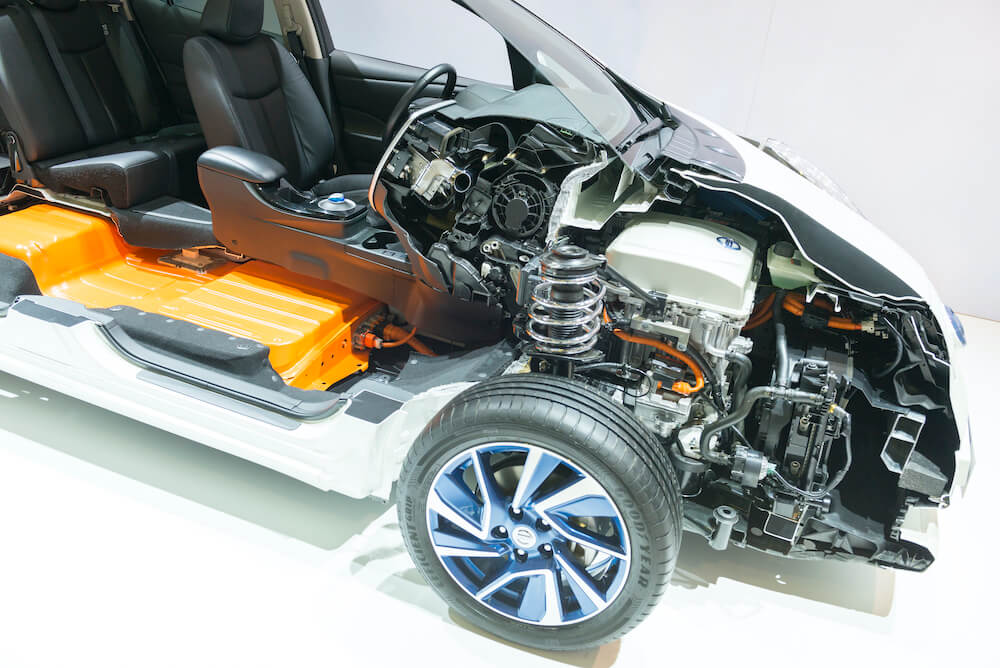Lithium-Ion batteries seem to be in everything we use these days from laptops, to cellphones, power tools, bikes and more recently in vehicles on the road. It seems like every other day there are news articles that pop up related to these batteries. So why are they helpful and, if there are recalls for them, why are they increasing in popularity?

First off what are these batteries made of; the raw material used in these batteries is lithium, which is a soft alkali metal and is an excellent conductor of electricity. It oxidizes quickly in air (oxidized to a dull grey), and when placed into water can dissolve and produce lithium hydroxide and flammable hydrogen. In these batteries, the lithium ions move from the negative electrode through an electrolyte (conducting) solution to the positive electrode when in use and reverse the flow of ions when charged.
You might be asking, what makes these batteries useful – well there are many benefits for these batteries, or they wouldn’t be mass produced to the scale they are. Some of the benefits of these batteries are that they last longer than Nickel cadmium (electronics) and lead acid batteries (vehicles), they can be used in extreme temperature ranges, and they are fast charging. In vehicles, this means less trouble starting in extreme cold, and the ability to power a vehicle without a combustion engine.
Those features all sound great but what about the issues that arise in the news. The biggest disadvantage with these batteries is generally related to manufacturing. If there is a defect or particles in the battery then the current path may change, or short within the battery, leading to overheating and fires. The second most prevalent cause for concern is overcharging of the batteries themselves. When overcharged, lithium-ion batteries can overheat leading to thermal runaway and ignition of the batteries causing vehicle and property damage. Thermal runaway is combatted by a design correction limiting the charge of the batteries.
In recent years there have been numerous recalls for lithium-ion batteries. In August 2020, Ford recalled 27, 000 plug in hybrids because a fault related to the car’s battery charging module overheating causing fires. In October 2020 BMW issued a recall for most of its plug-in hybrids due to manufacturing issues within the battery pack, related to welding debris left inside the pack that could create a short between modules. In November 2020 GMC recalled 69,000 Bolt Electric vehicles, because the affected vehicles’ cell packs have the potential to smoke and ignite internally, which could spread to the rest of the vehicle and cause a structure fire if parked inside a garage or near a house. GMC created a fix by limiting the battery charge to 90% of full capacity. In February 2021 Hyundai recalled 82, 000 vehicles (mostly Kona Electric Vehicles) and added 100,000 vehicles to the recall list in April 2021.
Overall Lithium-Ion batteries appear to be showing up more and more in the electronic devices that we use. Generally these devices are safe to use but we need to be diligent in registering our devices and keeping an eye on product recalls.
